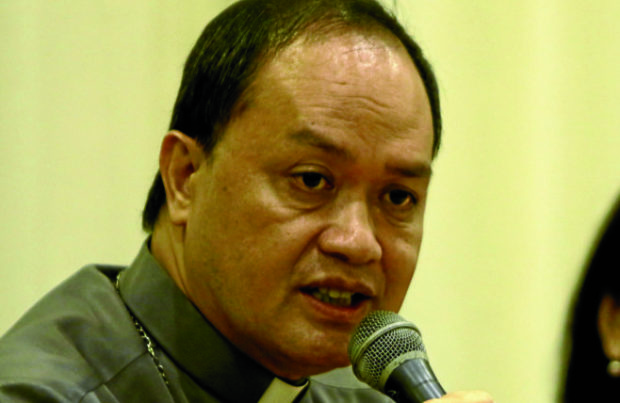
Caloocan Bishop Pablo Virgilio David INQUIRER FILE PHOTO / RICHARD A. REYES
A ranking church leader and outspoken critic of summary killings in President Duterte’s war on drugs expressed support for an assessment made by a top government antidrug official that the mega drug rehabilitation facility built using funds donated by a Chinese businessman in Nueva Ecija was a mistake.
Caloocan Bishop Pablo Virgilio David, incoming vice president of the Catholic Bishops’ Conference of the Philippines (CBCP), said he agreed with statements made by Dangerous Drugs Board (DDB) chair Dionisio Santiago that smaller, community-based rehab centers could have been more effective in reducing drug demand.
“The most sensible part was when (Santiago) pointed out that family care and community involvement are more feasible in the smaller community-based rehabilitation programs,” David said in a Facebook post reacting to Santiago’s assessment that the mega rehab facility built in Fort Magsaysay, an Army camp in Nueva Ecija, was a “mistake and impractical.”
The 100,000-square-meter facility has a 10,000-bed capacity and was opened in November last year after it was built using funds donated by a Chinese businessman.
In an earlier TV interview, Santiago said the facility was too high maintenance and the money spent to build and maintain it could have been put to better use on community-based rehab centers.
Harry Roque, Mr. Duterte’s new spokesperson, said he saw no reason to criticize the mega rehab center since no government funds were used to build it.
David agreed with Santiago’s observation, saying the DDB chair “made a lot of sense.”
The bishop cited existing community-based rehab centers in Caloocan City, which were products of a partnership between the local government and the Diocese of Caloocan.
The Caloocan rehab program seeks to help drug users quit with the help of their families, peers, neighbors and constant follow-ups through group meetings of recovering addicts, similar to the Narcotics Anonymous program.
David said six batches of users had already graduated since the rehab program started in October last year. He said 150 more graduated from the program on Oct. 29.
Since the mega rehab center had been completed already, David said the facility could be used for those who surrendered in the drug war and were in need of in-house rehabilitation.